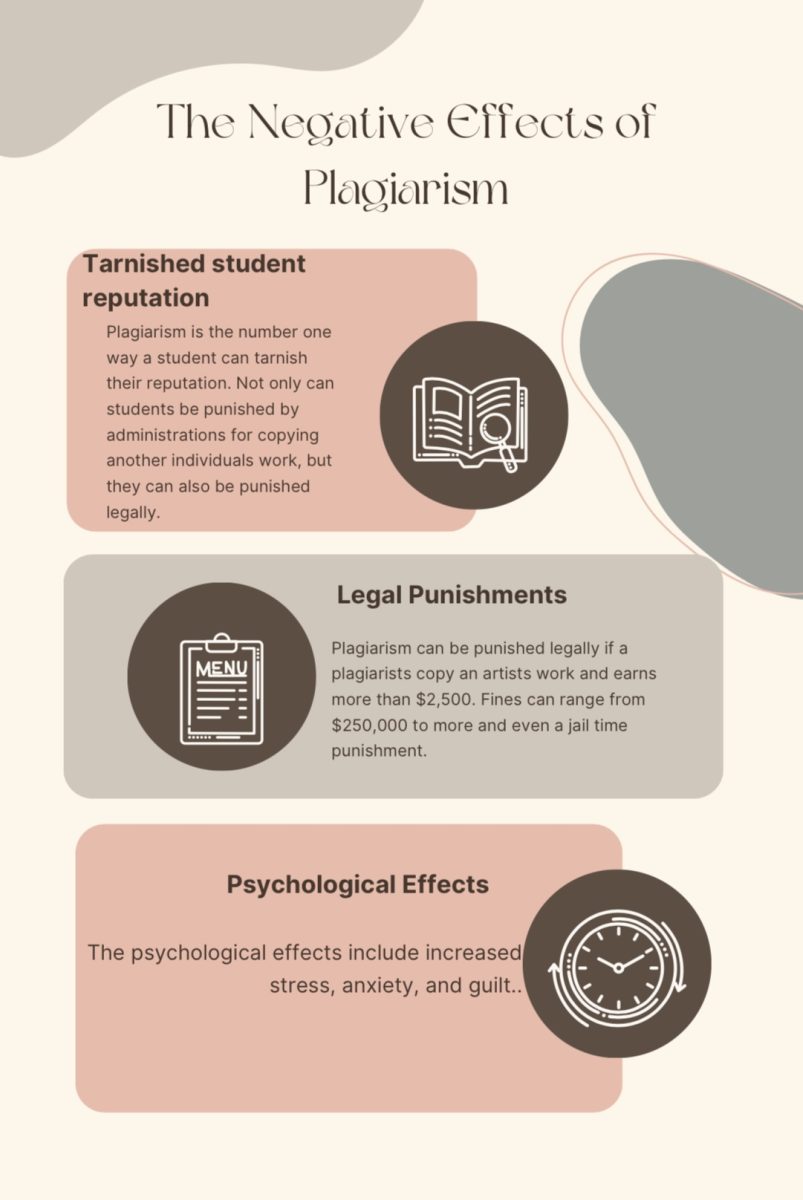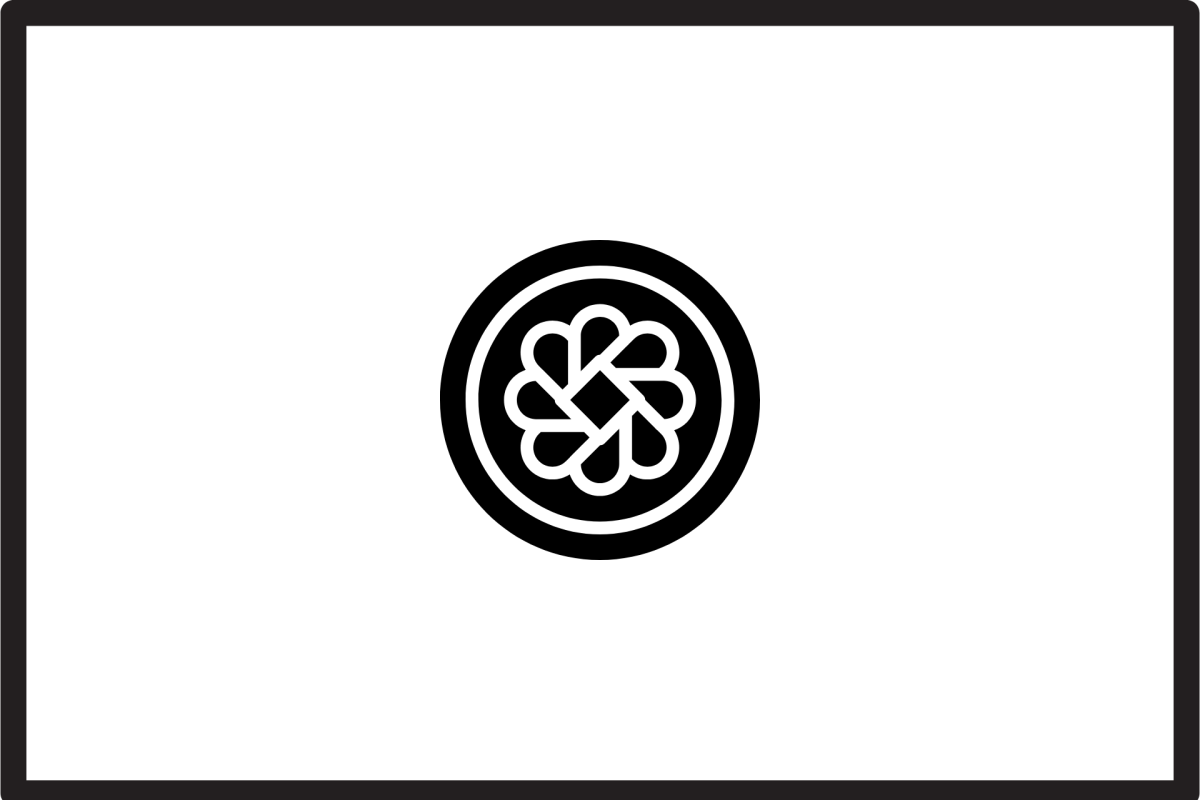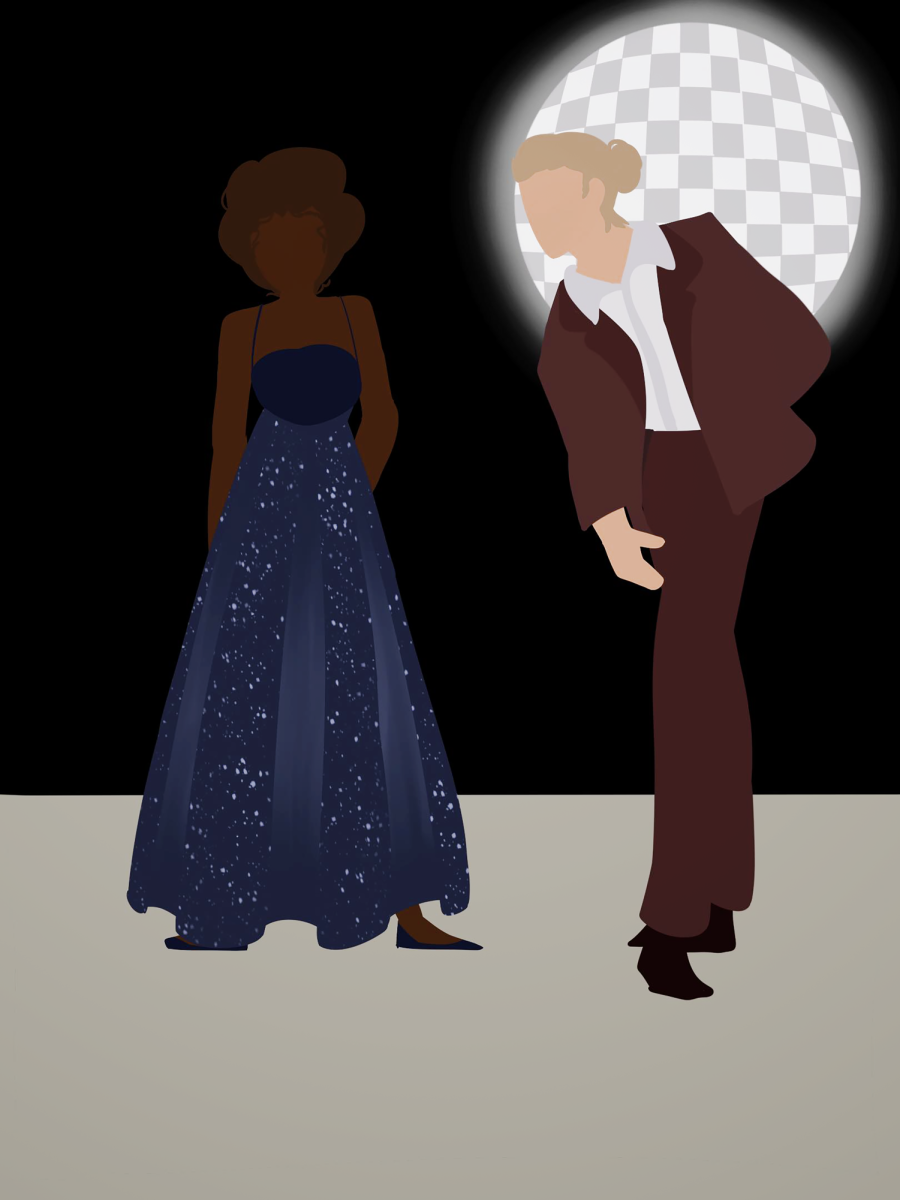In the digital age, where information flows freely and accessibility to it is at its peak, the temptation to copy-paste is ever-present. Plagiarism, the act of taking someone else’s work and passing it off as your own, might seem like a shortcut to success, but its repercussions extend far beyond the immediate “gratification” it offers.
Plagiarism overall undermines individual creativity and personal growth. When someone resorts to copying instead of producing original work, they deny themselves the opportunity to develop their critical thinking and analytical skills. Harvard University states under their plagiarism policy that “Plagiarism is a failure of imagination and a failure of ethics,” and is taken extremely seriously. In some cases, students have been expelled from the schools they attended simply because of a quick copy and paste from the internet.
Moreover, the psychological burden of dishonesty weighs heavily on those who plagiarize. Studies recorded at BMC have shown that individuals who engage in academic dishonesty often experience increased levels of stress, anxiety, and guilt, leading to an overall negative learning and life experience.
Many learning institutions also rely heavily on academic integrity to maintain credibility and uphold standards of excellence. Plagiarism not only compromises the integrity of individual students but also tarnishes the reputation of educational institutions. The University of North Texas highlights the risk of telling job employers of your tarnished academic career. “Consider telling future employers you have a degree from UNT and they respond, ‘Isn’t that the college where everyone just cheats their way through?’”
Furthermore, plagiarism undermines the trust between educators and students. When students submit plagiarized work, they deceive their professors, betraying the trust placed in them to uphold academic honesty. This breach of trust not only damages the student-teacher relationship but also diminishes the educational experience for everyone involved.
Beyond schooling, plagiarism poses large effects to society as well. In professional fields, intellectual property theft is a criminal issue. When individuals plagiarize, they not only rob others of recognition for their work but also impede the collective pursuit of discovery and innovation. For example, artist’s copyright their work so nobody is able to steal or use their work for their own greed.
Plagiarism may offer a short-sense of accomplishment, but its consequences are serious. From the individual toll on personal integrity to the effect of academic standards and societal trust, the repercussions of plagiarism are undeniable.








